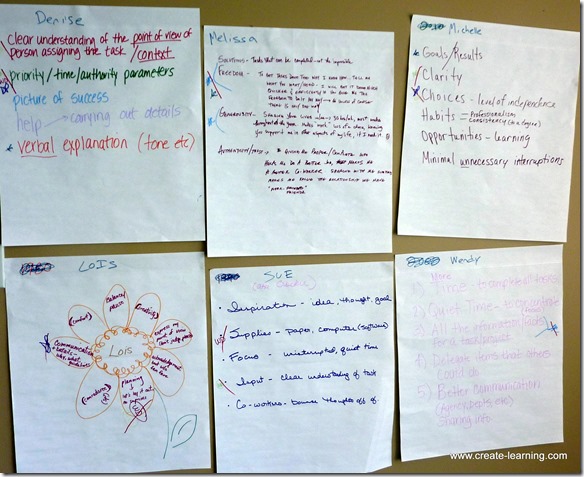
When working on an organization development process I like to meet 1 on 1 with as many people as possible. These meetings seek to understand 3 or 4 things:
- Establish trust & understand what both of us are doing here.
- Listen for consistent trends from multiple people.
- Identify 1 or 2 clues or signs that we are making progress.
- Learn the language of the organization.
Recently, in a meeting with 2 managers, a common discussion happened.
- Manager B, “I’ve been a manager for over 20 years. This is not going to teach me anything. You would think that after being here this long I’m doing something right. When I became a manager they did not offer any training, I had to learn through hard work.”
- Me, “How would we recognize when our time is useful?”
- Manager A, “For years we’ve been left alone to figure things out. It may be useful when we hear & try some of the stuff the book says. But I doubt it will change me at all.”
After the meeting I wrote:
Leadership Development Is Not About You … It is about the organization and those you support and support you.
Much content about leadership development is very introspective. Focusing on the individual. Trying to create the Übermensch through excessive self-discovery, assessments, journaling, therapy, emotional intelligence, etc… Believing if you can just know more about yourself you will become a mindful leader that others will openly follow.
What is wrong with leadership development being about the self?
It creates a Great-Man-Theory fallacy. The idea that a single great leader can change things. This idea is devoid of the needed context to get the work done. This context is:
- the organization as a whole
- the tasks that people are asked to complete
- the people who do the work.
Ignoring the complexity + interactivity of the workplace causes many companies to seek a single person to blame or praise. Also creating a culture of leadership development that is focused on building up a single person without building the team & those that interact with the work to be done.

